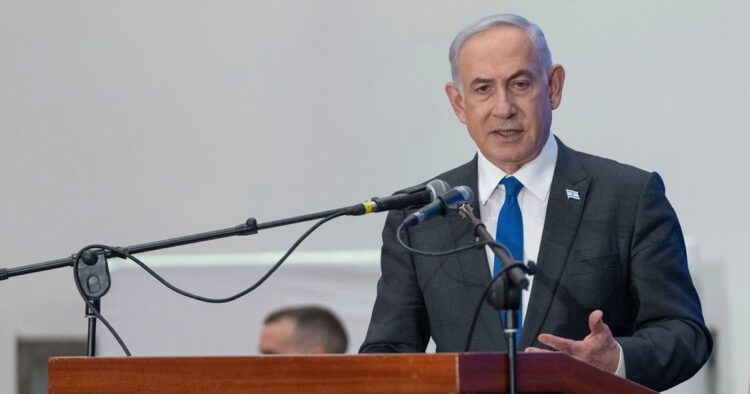Iran’s Attack on Israel: Israeli Prime Minister Benjamin Netanyahu has declared that his country has been preparing for a direct attack by Iran for years. Iran launched a barrage of explosive drones and missiles targeting Israeli territory in response to the bombing of Iran’s embassy in Syria’s capital, Damascus. The attack, which occurred late on Saturday, was met with a stern response from Netanyahu, who stated that Israel is ready for any scenario, defensively and offensively.
Israel’s Response: Netanyahu emphasized Israel’s strength and readiness to defend itself against threats. He stated that whoever harms Israel will be harmed in return, expressing gratitude for the support of the United States, Britain, France, and other countries. The Israeli Defense Forces (IDF) are on high alert, with defensive systems deployed to counter potential attacks.
Meanwhile, Hamas, the Palestinian militant group, has rejected the latest proposal for a truce in the conflict with Israel. Despite efforts by international mediators, including Egypt, Qatar, and the United States, a ceasefire agreement remains elusive. Netanyahu has authorized fresh ceasefire discussions, but Hamas’s refusal indicates ongoing tensions in the region.
It’s concerning to note that, according to reports circulating on social media, Palestinians were seen celebrating Iran’s recent attack on Israel outside the Al Aqsa Mosque in Jerusalem. This behavior echoes similar instances observed on October 7th, where Palestinians rejoiced in the midst of conflict. It’s disheartening to see such celebrations, as they indicate a support for violence and aggression rather than a pursuit of peace and stability in the region.
Palestinians are celebrating Iran's attack outside the Al Aqsa Mosque in Jerusalem.
They did so on Oct 7 too. Fuck around and find out.
Israel never started a war and won 8 wars. pic.twitter.com/LHkysQnQB8
— Imtiaz Mahmood (@ImtiazMadmood) April 13, 2024
The fact that Palestinians are openly praising Hamas, a militant group known for its attacks on Israel, further highlights the troubling mindset prevalent among certain segments of the Palestinian population. Instead of condemning violence and advocating for peaceful resolutions to conflicts, these celebrations glorify aggression and perpetuate a cycle of hostility.
Israeli Efforts for Ceasefire: Negotiations for a ceasefire have been ongoing, with mediators aiming to secure an agreement before the start of Ramadan. However, Hamas’s rejection of the proposed truce, despite significant flexibility from Israel, indicates a continuation of hostilities. The Israeli government has expressed frustration with Hamas’s unwillingness to engage in meaningful dialogue.
In response to Iran’s attack, residents in Jerusalem sought shelter, and the Israeli military deployed fighter jets to counter aerial threats. Close cooperation with the United States and regional partners is emphasized to mitigate the impact of the attacks. While Iran’s allies, including Yemen’s Huthi rebels and Lebanon’s Hezbollah, joined the assault, condemnation from countries like the UK, France, and Egypt has been swift.
As tensions escalate in the region, Israel remains vigilant in defending its territory against threats from Iran and its allies. Netanyahu’s vow to respond to any harm against Israel underscores the seriousness of the situation, while Hamas’s rejection of peace efforts prolongs the cycle of violence in the Israeli-Palestinian conflict. The international community continues to monitor the situation closely, urging all parties to seek peaceful resolutions to the ongoing tensions.

















Comments